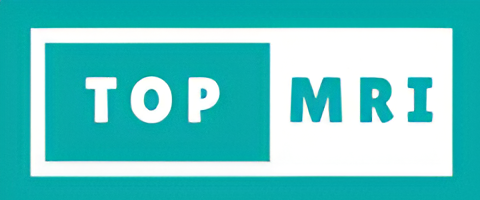
- Home
- Services
- Locations
- MRI Scan
- Greater London Area
- London – Marylebone, W1G 7HE – 3.0 T MRI Scan – £300
- London – Harley Street, W1U 2HX – Open MRI Scan – £500
- Middlesex – Enfield, EN2 8JL – 1.5 T MRI Scan – £300
- West Middlesex – Isleworth, TW7 6AF – 1.5 T MRI Scan – £300
- Surrey – Epsom, KT18 7LX – 1.5 T MRI Scan – £300
- Surrey – Ashford, TW13 3AA – 1.5 T MRI Scan – £300
- Surrey – Guildford, GU2 7XU – 3.0 T MRI Scan – £300
- Kent – Sidcup, Bexley, DA14 6LT – 1.5 T MRI Scan – £300
- North West England
- Manchester – M80 4AN – Open MRI Scan – £500
- Greater Manchester – Manchester, SK8 7NB – 1.5 T MRI Scan – £279
- Greater Manchester – Whythenshaw, M23 9LT – 3.0 T MRI Scan – £300
- Greater Manchester – Stockport, SK2 7JE – 1.5 T MRI Scan – £300
- Cumbria – Cockermouth, CA13 9HT – 1.5 T MRI Scan – £279
- Cumbria – Penrith, CA11 0AH – 1.5 T MRI Scan – £279
- Lancashire – Preston, PR4 0AP – 1.5 T MRI Scan – £279
- Lancashire – Fylde, FY8 1PF – 1.5 T MRI – £300
- North East England
- East Midlands
- East of England
- West Midlands
- South West England
- South East England
- Wales
- Yorkshire and the Humber
- Greater London Area
- CT Scan
- Full Body MRI Scan
- Ultrasound
- MRI Scan
- Patients
- Referrers
- Prices
- 0333 344 1811
[email protected]
Angioimmunoblastic T-Cell Lymphoma (AITL)
- Uncategorized
-
Sep 15
- Share post
Angioimmunoblastic T-Cell Lymphoma (AITL): Symptoms, Causes, Diagnosis, Treatment, and Future Outlook.
Disclaimer:
This blog is for informational purposes only and should not be taken as medical advice. Content is sourced from third parties, and we do not guarantee accuracy or accept any liability for its use. Always consult a qualified healthcare professional for medical guidance.
What is Angioimmunoblastic T-Cell Lymphoma (AITL)?
Angioimmunoblastic T-Cell Lymphoma (AITL) is a rare, aggressive peripheral T-cell lymphoma, accounting for 20-30% of PTCLs. It arises from follicular helper T-cells, often involving immune dysregulation and autoimmune-like features. In 2025, AITL affects older adults (median age 65), with improved outcomes through targeted approaches.
Symptoms
Symptoms include generalized swollen lymph nodes, fever, night sweats, weight loss, skin rash (often itchy), joint pain, and autoimmune symptoms (e.g., hemolytic anemia, arthritis). Advanced cases cause hepatosplenomegaly, fluid buildup (pleural effusion), or neurological symptoms. Symptoms are systemic, mimicking infections or autoimmune diseases.
Causes
Causes include genetic mutations (TET2, DNMT3A, IDH2), Epstein-Barr virus (EBV) infection (in 80% of cases), and chronic immune stimulation. Risk factors include immunosuppression and autoimmune disorders. In 2025, research highlights how T-cell receptor signaling and epigenetic changes drive AITL’s aggressive behavior.
Diagnosis
Diagnosis requires lymph node biopsy with immunohistochemistry (CD10, CXCL13 positive) and molecular testing for TET2/IDH2 mutations. Imaging (PET/CT) and bone marrow biopsy assess spread. In 2025, single-cell RNA sequencing refines diagnosis by identifying malignant T-cell clones, improving accuracy.
Treatment
Treatment includes CHOP chemotherapy, with 30-50% response rates. Epigenetic therapies (e.g., romidepsin, azacitidine for TET2 mutations) improve outcomes in 60% of relapsed cases. Brentuximab vedotin targets CD30+ cases, and stem cell transplant offers cure in high-risk patients. In 2025, bispecific antibodies and IDH2 inhibitors show promise in trials.
Future Outlook
In 2025, 5-year survival is 30-40%, with epigenetic therapies raising it to 50% in mutation-specific cases. Research into CAR-T cells, immune modulators, and combination therapies aims for 60% survival by 2030, with focus on overcoming immune dysregulation and relapse.
Sources
The information for AITL is sourced from Blood Journal’s “AITL: Diagnosis and Treatment” for diagnosis and management strategies; NCI’s “Non-Hodgkin Lymphoma Treatment (PDQ®)” for AITL-specific details; PMC’s “Epigenetic Drivers of AITL” for causes and genetic insights; Medscape’s “Angioimmunoblastic T-Cell Lymphoma” for etiology and symptoms; and JAMA Oncology’s “Emerging Therapies in PTCL” for 2025 advancements.